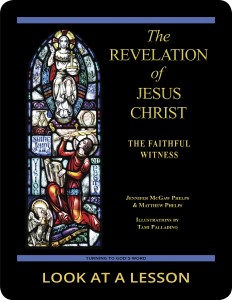punishment
 The parable from the Gospel According to Matthew 25:31–46 (NABRE) portrays the end of time and shows Jesus separating sheep from goats—those who have earned eternal reward from those going to eternal punishment.
The parable from the Gospel According to Matthew 25:31–46 (NABRE) portrays the end of time and shows Jesus separating sheep from goats—those who have earned eternal reward from those going to eternal punishment.
Ancient Greek has more than one word that can mean some sort of punishment. The word ποινή (poine) is the ultimate root of the English word punish and contains some sense of repayment or paying back for a wrong. This view of punishment is one of balancing the scales or righting the wrong.
The passage in the Gospel According to Matthew, however, uses a different word, κόλασις (kolasis), which comes from the idea of pruning or cutting away improper growth. The sense here is that something is fundamentally wrong and must be corrected by removal of that which is improper. Consider why the author might have chosen this view of punishment as the eternal consequence of sin. What do you think this suggests about the fundamental nature of sin and sinners?
you also may like our study of the book of Revelation
 The Revelation of Jesus Christ: The Faithful Witness, a 23-lesson Catholic Bible study with an imprimatur, examines ways in which our traditional Christian view of heaven is built on Hebrew apocalyptic visions recorded in the Old Testament. This recently revised study includes maps and additional commentary and takes a close look at the role of the prophets in present-day Christianity. Illustrations by Tami Palladino depict the often-misunderstood images in the book of Revelation. Click on the book’s cover to view a sample lesson.
The Revelation of Jesus Christ: The Faithful Witness, a 23-lesson Catholic Bible study with an imprimatur, examines ways in which our traditional Christian view of heaven is built on Hebrew apocalyptic visions recorded in the Old Testament. This recently revised study includes maps and additional commentary and takes a close look at the role of the prophets in present-day Christianity. Illustrations by Tami Palladino depict the often-misunderstood images in the book of Revelation. Click on the book’s cover to view a sample lesson.
 Click on the picture of the statue of Moses with horns (above) to learn more about Lost in Translation. A new entry is archived each Monday. Contact us to receive Lost in Translation by email every week. You may use any of the contact links on our website to ask Matthew a question.
Click on the picture of the statue of Moses with horns (above) to learn more about Lost in Translation. A new entry is archived each Monday. Contact us to receive Lost in Translation by email every week. You may use any of the contact links on our website to ask Matthew a question.
